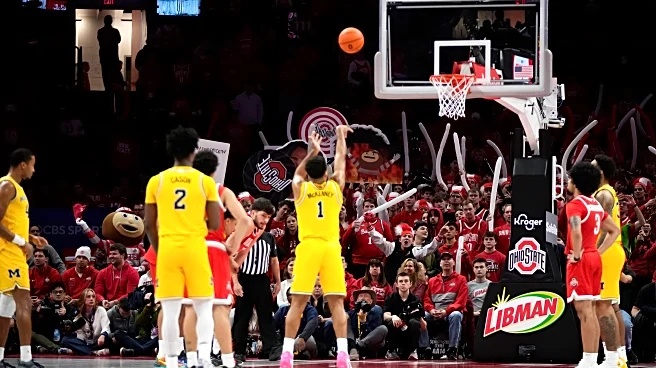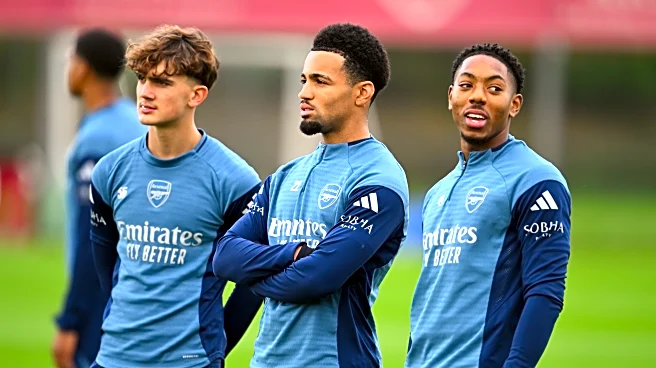What's Happening?
Yunus Musah, a midfielder for the United States Men's National Team (USMNT) and AC Milan, has outlined ambitious goals for the upcoming year. Musah aims to win three major trophies with Milan—Serie A, Coppa Italia, and Italian Supercoppa—and subsequently achieve success with the USMNT at the FIFA World Cup. Musah recently explained his decision to skip the 2025 Gold Cup, citing the need for personal time off after a demanding season. Despite criticism, Musah emphasized the importance of player welfare and his commitment to returning in optimal condition for both club and national duties. Musah's focus remains on contributing significantly to Milan's success and preparing for the World Cup, which will be hosted in the U.S., Mexico, and Canada.
Why It's Important?
Musah's decision to prioritize personal well-being over immediate national team commitments highlights ongoing discussions about player welfare in professional sports. His approach may influence other athletes to consider similar actions, potentially leading to broader changes in how teams manage player workloads. Musah's goals for Milan and the USMNT could impact both teams' strategies and expectations, especially with the World Cup on the horizon. Success in these endeavors could elevate Musah's status in international soccer and strengthen the USMNT's position in global competitions.
What's Next?
Musah will focus on his performance with AC Milan, aiming to secure victories in domestic competitions. His preparation for the World Cup will involve adapting to new strategies under USMNT head coach Mauricio Pochettino. The upcoming World Cup presents an opportunity for Musah and the USMNT to showcase their capabilities on home soil, potentially increasing support and visibility for soccer in the U.S.
Beyond the Headlines
Musah's story reflects broader themes of athlete autonomy and the balancing act between professional obligations and personal health. His decision to skip the Gold Cup may inspire discussions on the ethical considerations of player management and the long-term impacts of prioritizing mental and physical health in sports.










